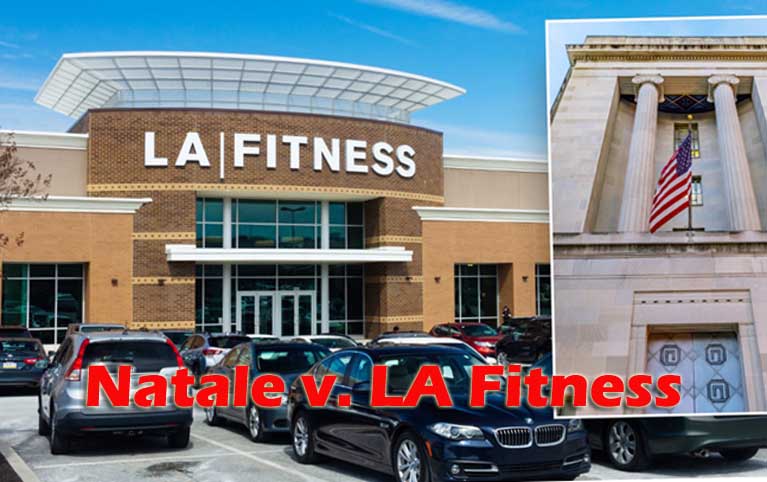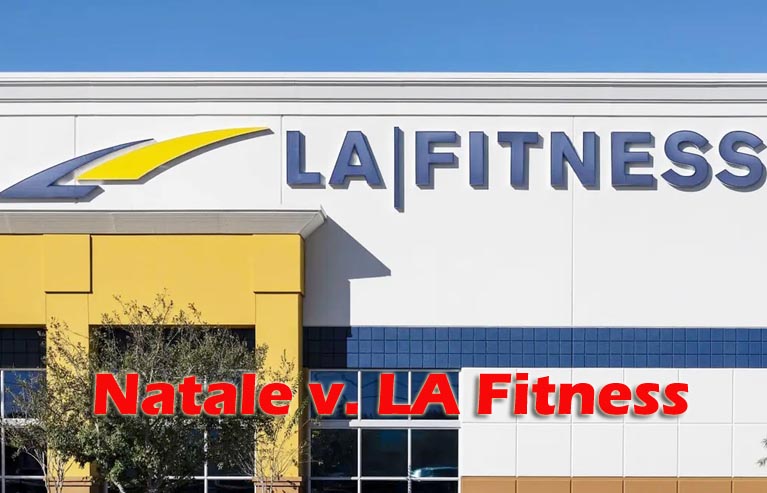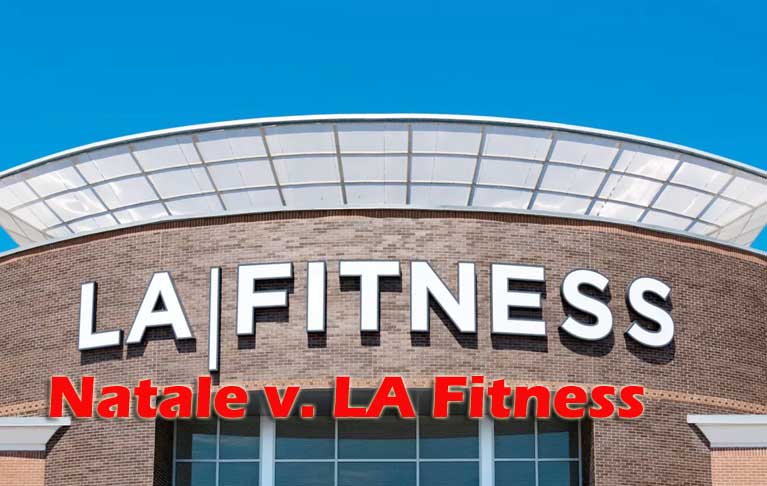The 2016 LA Fitness Copiague Lawsuit: A Full Breakdown
We’ve all heard the nightmare stories about trying to cancel a gym membership. For one New York woman, that common frustration turned into a real-life legal battle that actually forced a corporate giant to change its rules.
This is the story of the 2016 LA Fitness lawsuit that started in Copiague, NY. It’s a case that often gets tangled up with other legal issues involving the gym chain. Let’s clear up the confusion and break down exactly what happened, why it mattered, and how it ended.
What Sparked the Lawsuit? The Story of Dina Natale
It all began with a serious health crisis. Dina Natale, a member of the LA Fitness in Copiague, NY, suffered a major heart attack.
During her recovery, her doctors told her she could no longer use the gym. Following their advice, she tried to do what so many people struggle with: cancel her LA Fitness membership.
What should have been simple became a nightmare. Even with a doctor’s note, Natale found the cancellation process nearly impossible. She hit wall after wall, facing delays and what seemed like a corporate system designed to keep her paying.
Feeling she had no other option, she decided to sue. Her experience became the basis for a personal injury lawsuit, arguing that the gym’s refusal to honor her doctor’s note caused her serious emotional distress during an already difficult time.

Inside the Courtroom: Key Details from Natale v. LA Fitness
The case, officially called Natale v. LA Fitness, was filed in the New York State Supreme Court in Suffolk County. This was a significant legal fight, not a small claims dispute.
The Legal Claims: What Was LA Fitness Accused Of?
At its core, the Natale v LA Fitness case claimed the gym’s actions were worse than just bad customer service. The lawsuit alleged that by making cancellation impossible despite a medical emergency, LA Fitness was negligent and caused intentional emotional distress.
It argued the company’s practices were so “exceedingly difficult” that they crossed a line, especially when dealing with someone recovering from a life-threatening event.
The Defense: How LA Fitness Responded
As expected, LA Fitness asked the court to throw the lawsuit out. They filed a motion for “summary judgment,” basically arguing that Natale’s case wasn’t strong enough to even warrant a trial.
Their defense leaned on the fine print of her membership agreement, stating she was bound by those terms.
The Judge’s Key Decision: Denying Summary Judgment
This was the major turning point in the 2016 Copiague lawsuit. The judge looked at the arguments and denied LA Fitness’s motion. This meant the court believed Dina Natale’s claims had enough merit to potentially go before a jury.
This decision was a massive win for her case. It showed the court took her side seriously and forced LA Fitness to either settle or risk a public trial.
The Outcome and Impact of the Lawsuit
So, what finally happened?
Was There a Settlement? Understanding the Case’s Resolution
While the exact details are private, cases like this almost always end in an out-of-court settlement. After the judge’s decision, it was in LA Fitness’s interest to avoid a messy public trial.
The outcome of the Natale v LA Fitness case was almost certainly a private settlement. This likely included a financial payment to Natale and, more importantly, a promise from the company to change its policy.
The Direct Result: LA Fitness Changes Its Cancellation Policy
This is the most important part of the story. Because of Dina Natale’s lawsuit, LA Fitness changed its corporate policy.
The gym chain officially created a new rule: members could now cancel their contracts without a penalty if they provided a verifiable doctor’s note.
This was a huge win for consumer rights. It proved that one person’s fight could make a massive corporation change its ways.
Could This Happen at Another Gym? Understanding Member Rights
Natale’s story might seem unique, but the problem isn’t. It makes you wonder what rights gym members really have.
How to Cancel a Gym Membership with a Medical Note
If you have a legitimate medical reason that stops you from working out, you have a strong case for cancellation. Here’s what to do:
-
Get a clear, detailed note from your doctor on official letterhead.
-
Submit it to the gym’s management by email or certified mail to have a record.
-
Point out their own policy—many clubs, partly because of cases like this, now have medical cancellation clauses.
-
If they still refuse, remind them of the LA Fitness lawsuit outcome and consider filing a complaint with your state’s consumer protection agency.
Your Rights When a Gym Makes Cancellation “Exceedingly Difficult”
You are not without options. Gym contracts are binding, but they can’t be unfair. If a gym uses shady practices to trap you into paying, they might be breaking consumer protection laws. Keep records of everything, and don’t hesitate to escalate your complaint.

Timeline of Events: From Heart Attack to Policy Change
Here’s a quick look at how everything unfolded:
-
2013: Dina Natale has a heart attack and tries to cancel her LA Fitness membership in Copiague, NY.
-
2016: Natale files her lawsuit against LA Fitness in Suffolk County Supreme Court.
-
2016: The court denies LA Fitness’s motion to dismiss the case.
-
Late 2016: The case is settled. LA Fitness changes its policy nationwide to accept doctor’s notes for cancellation.
Other LA Fitness Lawsuits: Separating Fact from Fiction
Search for “LA Fitness lawsuit,” and you’ll find results for several different cases. It’s key to tell them apart from the 2016 Copiague case.
The 2014 ADA Accessibility Agreement (DOJ)
This was a nationwide ADA lawsuit against LA Fitness about physical accessibility for people with disabilities. The U.S. Department of Justice found many LA Fitness locations violated the Americans with Disabilities Act (ADA). This led to a settlement requiring the gym to retrofit its clubs with features like accessible parking and pool lifts. It was completely separate from Natale’s dispute.
The 2025 FTC Lawsuit Over Cancellation Practices
This shows the problem didn’t go away. In 2025, the Federal Trade Commission (FTC) filed a new lawsuit against LA Fitness, again going after its “exceedingly difficult” cancellation process. This proves that while the Natale case forced one change, the wider issue of making cancellation a headache remained for years after.
Frequently Asked Questions
What was the final settlement amount in the Natale case?
The financial details of out-of-court settlements are almost always kept private. While the dollar amount wasn’t revealed, the biggest win was the policy change.
Is the LA Fitness in Copiague still open?
Yes, the LA Fitness at 870 Montauk Hwy in Copiague, NY is still open. The lawsuit was about corporate policies, not the specific club’s operations.
Can I still join a class action against LA Fitness?
The Natale case was an individual lawsuit, not a class action. However, with the new FTC lawsuit against LA Fitness in 2025, a class action could come from that. If you’ve had similar problems canceling, it’s worth talking to a consumer rights attorney.
You May Also Like: Crepe Erase Lawsuit and Rowdy Oxford Lawsuit

